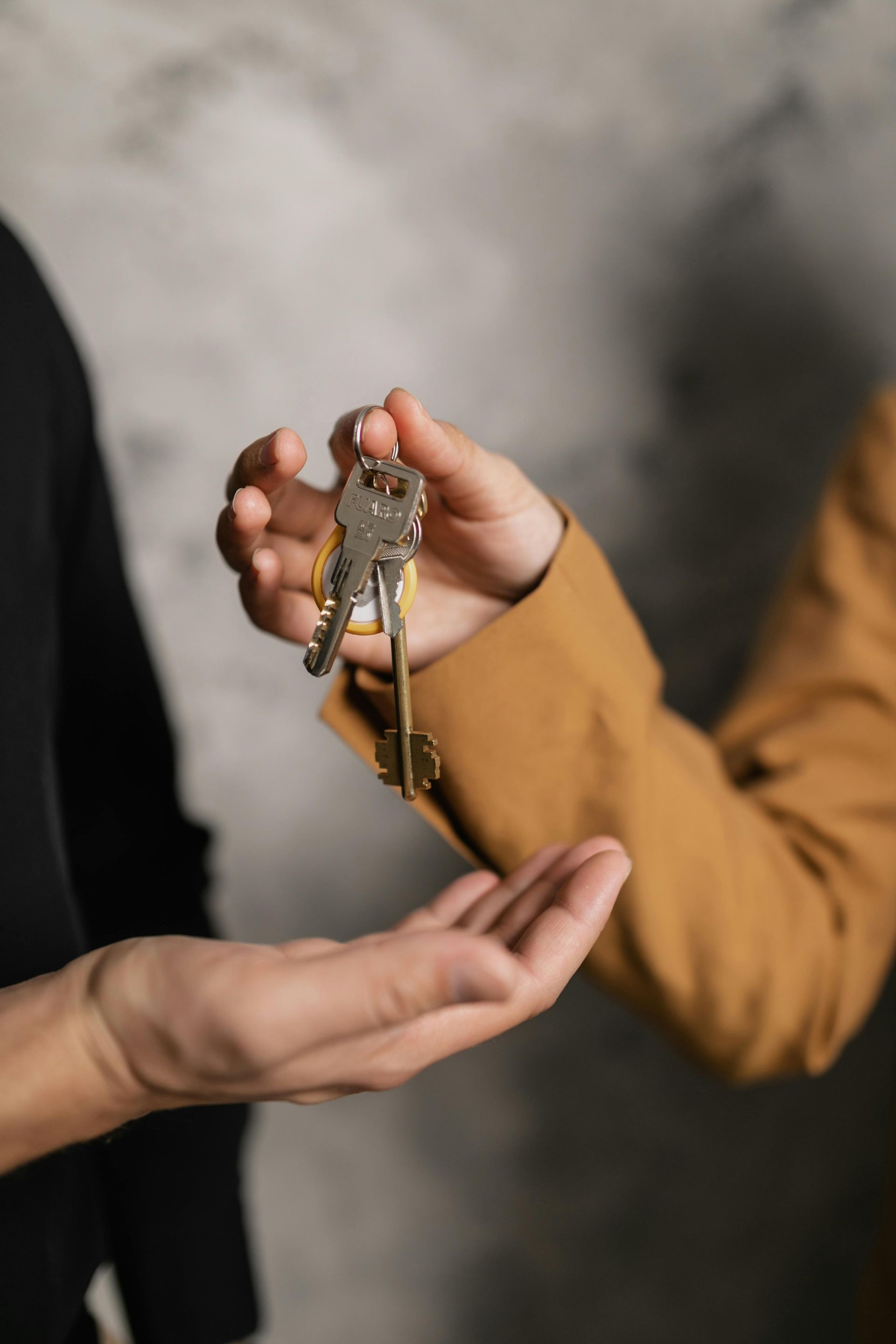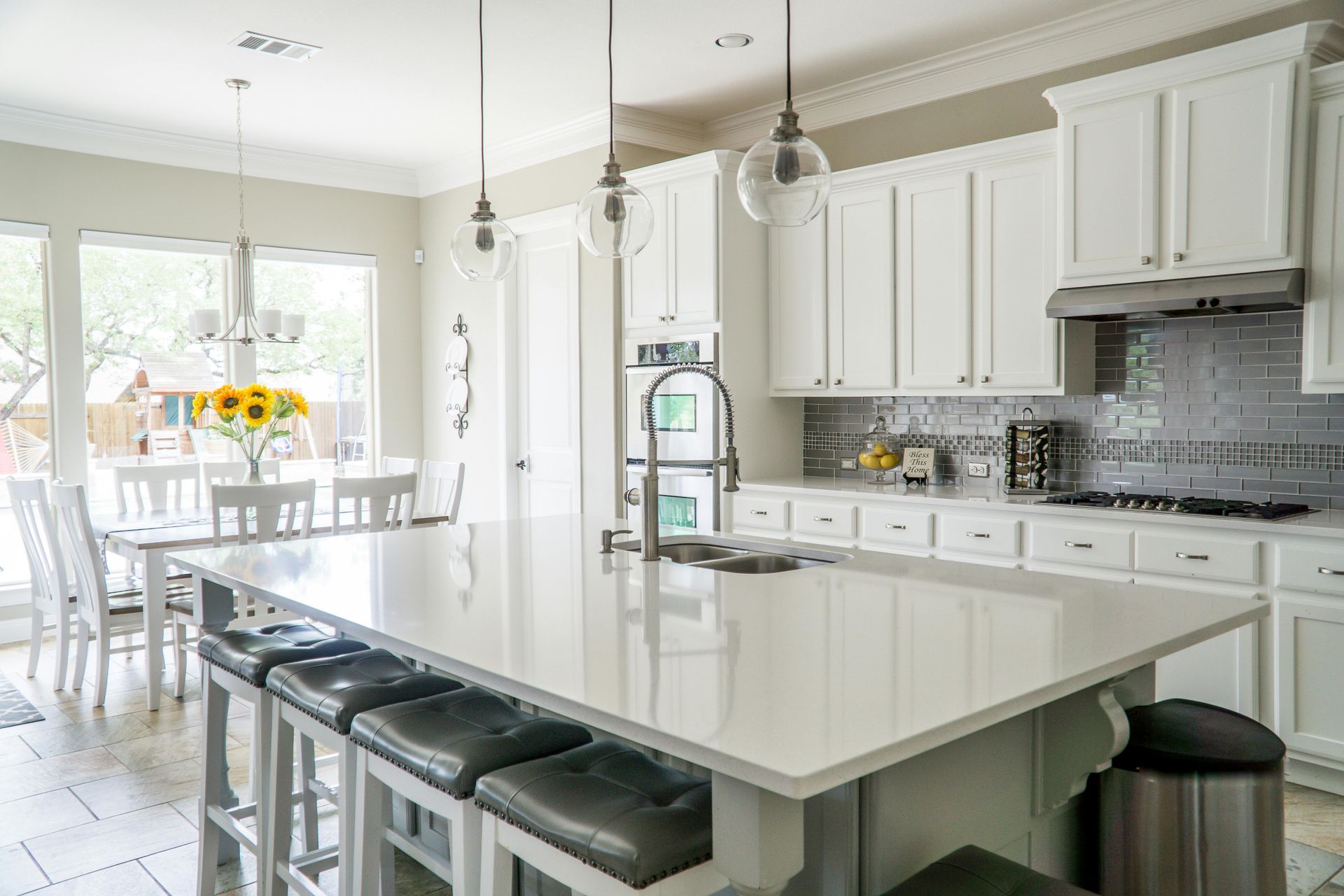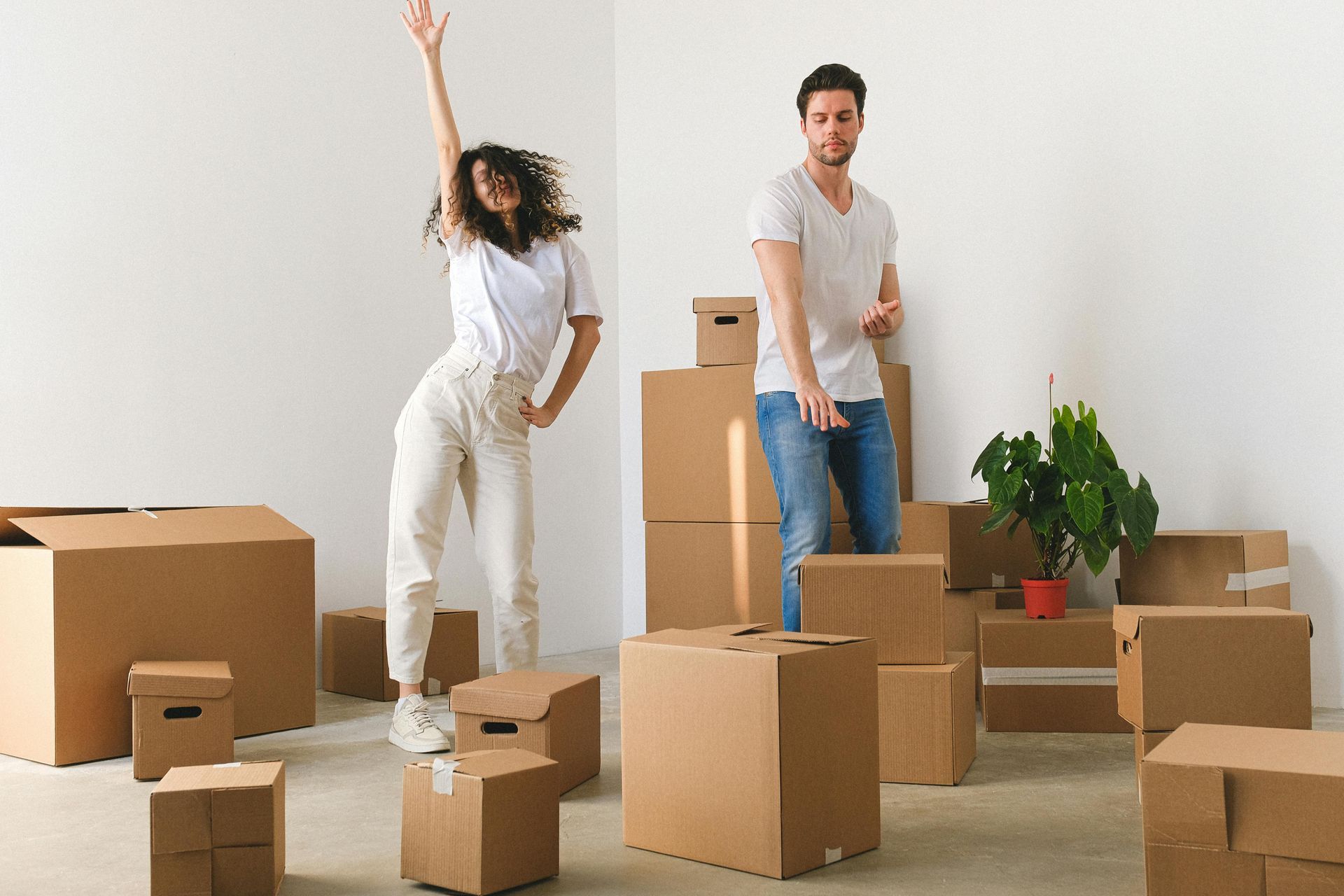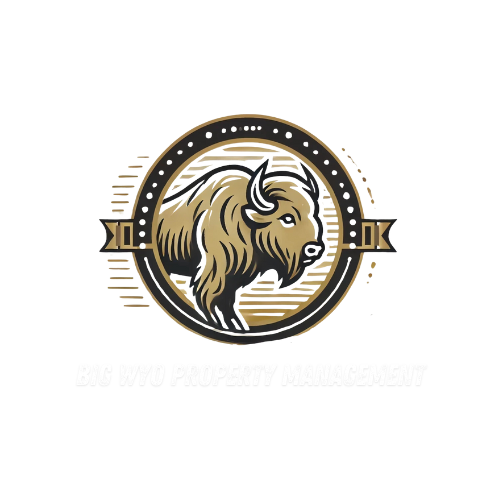Tenant’s Guide to Handling Maintenance Issues
Parker Lewis • March 1, 2025
Tenant’s Guide to Handling Maintenance Issues

As a renter, you may encounter maintenance issues from time to time, whether it’s a leaky faucet, a broken appliance, or a heating issue. Knowing how to handle these problems efficiently and responsibly will help keep your home in good shape and maintain a positive relationship with your landlord. Here’s a guide to handling maintenance requests like a pro!
1. Know What You’re Responsible For
Before requesting repairs, it’s important to understand which maintenance tasks are your responsibility and which fall under your landlord’s duties.
Typically, landlords handle:
✅ Major plumbing or electrical issues
✅ Heating and air conditioning repairs
✅ Roof leaks and structural damage
✅ Broken appliances (if provided by the landlord)
Tenants are usually responsible for:
🔧 Replacing light bulbs and air filters
🧼 Keeping the unit clean and preventing mold buildup
🚽 Unclogging minor drain issues (like a small hair clog)
💧 Preventing damage (e.g., reporting leaks before they worsen)
Always review your lease agreement for specific maintenance responsibilities!
2. How to Submit a Maintenance Request
If something breaks or stops working, follow these steps to report it properly:
Step 1: Identify the Problem
Be specific when describing the issue. Instead of saying “the sink is broken,” say “the kitchen sink is leaking underneath the cabinet”.
If possible, troubleshoot minor problems before submitting a request (e.g., resetting a tripped breaker).
Step 2: Contact Your Landlord or Property Manager Via Online Portal
Create a new maintenance request in your online portal
📍 The exact location of the issue (e.g., "bathroom sink")
📷 Photos or videos (if applicable)
🕒 Preferred availability for a repair appointment
3. What to Do in an Emergency
Some maintenance issues require immediate attention to prevent further damage. Here’s what to do in urgent situations:
🚰 Plumbing Emergency (Flooding, Burst Pipe, Major Leak)
✅ Shut off the water valve (if accessible).
✅ Place towels or buckets to contain water.
✅ Contact your landlord immediately on the emergency line.
🔥 No Heat in Winter
✅ Check the thermostat and replace batteries if needed.
✅ If the issue persists, report it right away—heat is a required utility in most areas.
⚠️ Electrical Issues (Power Outages, Exposed Wires, Sparks)
✅ Check if the issue is isolated to your unit or a full power outage.
✅ Reset the circuit breaker.
✅ If there are sparks, a burning smell, or exposed wires, contact your landlord immediately and avoid using electrical outlets.
🚪 Locked Out of Your Unit
✅ Check your lease—some landlords provide emergency lockout services.
✅ If not, you may need to call a locksmith at your own expense.
4. How to Prevent Maintenance Issues
A little preventative care can help you avoid bigger repairs later!
🔹 Prevent drain clogs – Avoid pouring grease down the sink and use drain covers.
🔹 Test smoke detectors – Replace batteries as needed.
🔹 Keep an eye on leaks – Report minor drips before they turn into bigger plumbing issues.
🔹 Clean regularly – Dust buildup can affect appliances like air conditioners and vents.
By taking good care of your rental unit and reporting problems promptly, you’ll keep your home comfortable and avoid unnecessary repair costs!
Final Thoughts
Handling maintenance issues properly ensures a safe and well-maintained living space. Always communicate clearly with your landlord, report issues as soon as possible, and follow up if necessary. By understanding your responsibilities and taking preventative measures, you’ll make your rental experience much smoother!

By Parker Lewis
•
March 1, 2025
Being a good tenant not only helps you maintain a positive relationship with your landlord but also makes your renting experience smooth and stress-free. Plus, being a responsible tenant increases your chances of getting your security deposit back and receiving great rental references in the future. Here’s how to be a great tenant! 1. Pay Rent on Time One of the most important responsibilities as a tenant is paying rent on time. Here’s how to stay on top of it: ✅ Set up automatic payments or reminders to avoid forgetting. ✅ Check your lease for grace periods and late fees. ✅ If you anticipate being late, communicate with your landlord as soon as possible. Paying on time shows responsibility and reliability, which can work in your favor if you ever need a lease extension or reference. 2. Respect the Property Taking care of your rental unit helps you avoid additional charges and keeps it in great shape for the duration of your lease. Ways to keep your rental in good condition: 🏡 Clean regularly to prevent buildup of dirt and damage. 🛠 Report maintenance issues before they become bigger problems. 🚫 Avoid unauthorized modifications, such as painting walls or drilling holes. 🐾 Follow pet rules to prevent extra wear and tear. Treat the rental as if it were your own home, and your landlord will appreciate your efforts! 3. Follow the Lease Agreement Your lease is a legally binding contract, and violating the terms could lead to fines or even eviction. Be sure to: 📜 Read the lease carefully before signing. 👤 Follow guest policies to avoid exceeding occupancy limits. 📢 Ask for permission before making any changes to the property. If you ever have questions about your lease, don’t hesitate to ask your landlord for clarification. 4. Be a Considerate Neighbor If you live in an apartment or shared housing, being a respectful neighbor is key to maintaining a peaceful living environment. How to be a good neighbor: 🔇 Keep noise levels reasonable, especially late at night. 🚗 Follow parking rules to avoid taking up others’ spots. 🚮 Dispose of trash properly and follow community guidelines. A good relationship with neighbors makes for a more enjoyable living experience and reduces complaints to your landlord. 5. Communicate with Your Landlord Good communication helps build a trustworthy and cooperative relationship with your landlord or property manager. Best practices for communicating with your landlord: 📞 Report maintenance issues as soon as possible. 📅 Give proper notice before moving out or renewing your lease. 📝 Put important requests in writing, like repair requests or lease modifications. Being polite and professional in your interactions goes a long way in keeping your rental experience positive. 6. Prepare for Moving Out When it’s time to move out, being responsible ensures you get your security deposit back and leave on good terms. What to do before moving out: ✔️ Give proper notice according to your lease terms. 🧹 Clean thoroughly, including floors, appliances, and walls. 🔧 Fix minor damages (patch holes, replace light bulbs, etc.). 📷 Take move-out photos as proof of the unit’s condition. A smooth move-out process can lead to a positive reference for future rentals! Final Thoughts Being a great tenant benefits both you and your landlord—you’ll enjoy a stress-free rental experience, maintain a good rental history, and even have an easier time securing future housing. By paying rent on time, respecting the property, following the lease, and communicating well, you’ll set yourself up for a successful and enjoyable renting experience!

By Parker Lewis
•
March 1, 2025
As a tenant, you’re responsible for keeping your rental in good condition. While your landlord or property manager will handle major repairs, small maintenance tasks can help prevent bigger problems down the road. Here are some simple DIY maintenance tips to keep your home running smoothly and avoid unnecessary charges. 1. Prevent Clogged Drains Clogged sinks and tubs are one of the most common maintenance issues in rentals. Here’s how to prevent them: Use drain strainers to catch hair and food debris. Avoid pouring grease or coffee grounds down the drain. Flush drains monthly by pouring a mix of baking soda and vinegar, followed by hot water. If your drain is already clogged, try using a plunger or drain snake before calling maintenance. 2. Check and Replace Air Filters Dirty air filters reduce air quality and make your HVAC system work harder. Most landlords recommend changing them every 1-3 months. If you’re unsure how to do it, ask your property manager for guidance. 3. Avoid Overloading Outlets Electrical issues can be dangerous, so avoid plugging too many devices into a single outlet or using cheap power strips. If an outlet stops working, try resetting the circuit breaker before submitting a maintenance request. 4. Keep an Eye on Leaks Water damage can lead to costly repairs. Regularly check under sinks, around toilets, and near appliances for signs of leaks. If you notice dripping faucets or running toilets, report them to your landlord before they cause major damage. 5. Prevent Mold and Mildew Mold thrives in damp areas like bathrooms and kitchens. To keep it under control: Use exhaust fans or open windows after showering. Wipe down wet surfaces regularly. Report any leaks or water damage immediately. 6. Test Smoke and Carbon Monoxide Detectors Your smoke and carbon monoxide detectors are critical for safety. Test them monthly by pressing the test button. If the alarm doesn’t sound or it chirps, replace the batteries or inform your landlord. 7. Know Where Your Shut-Off Valves Are In case of a plumbing emergency, it’s important to know where your water shut-off valves are. If a pipe bursts or your toilet won’t stop running, shutting off the water quickly can prevent major damage. 8. Maintain Appliances Properly To extend the life of your rental’s appliances: Clean out your dryer’s lint trap after every load to prevent fires. Avoid overloading the dishwasher to keep it from breaking. Defrost your freezer if ice buildup becomes excessive. 9. Be Careful with Walls and Floors To prevent damage that could cost you part of your security deposit: Use command hooks instead of nails for hanging decorations. Place felt pads under furniture to avoid scratching wood floors. Immediately clean up spills on carpets to prevent staining. 10. Communicate with Your Landlord If you notice an issue that you can’t fix yourself, report it as soon as possible. Small problems, like a slow leak, can turn into expensive repairs if ignored. A good tenant is proactive about maintenance and keeps the home in great condition! By following these simple maintenance tips, you can avoid unnecessary repair costs, keep your rental in great shape, and enjoy a hassle-free living experience.

By Parker Lewis
•
March 1, 2025
Moving out of a rental home can be stressful, and one of the biggest concerns for tenants is getting their security deposit back. While landlords hold this deposit as protection against damages or unpaid rent, there are steps you can take to ensure you receive the full amount when you move out. 1. Review Your Lease Agreement Your lease outlines the expectations for move-out, including cleaning requirements, repairs, and notice periods. Make sure you understand what is required to get your deposit back in full. 2. Document Everything Before You Move In If you haven’t already, take photos and videos of the rental when you first move in. This will protect you from being held responsible for pre-existing damage. If you notice anything wrong, report it to your landlord immediately. 3. Give Proper Notice Most leases require tenants to give a 30-day written notice before moving out. Failing to do so could result in penalties or loss of your deposit. Check your lease to confirm the notice period required. 4. Clean Thoroughly A major reason tenants lose their deposit is not leaving the rental in clean condition. Some cleaning tips include: Scrub kitchens and bathrooms, including appliances, sinks, and toilets. Wipe down walls, windows, and baseboards. Vacuum and mop floors. Remove all trash and personal belongings. 5. Repair Minor Damages Small issues, like nail holes, scuffed paint, or broken blinds, can be deducted from your deposit. Spackling small holes, replacing light bulbs, and fixing minor damage can help you keep more of your money. 6. Request a Pre-Move-Out Inspection Some landlords allow a walk-through inspection before your official move-out date. This gives you a chance to address any issues before they become deductions. 7. Return Your Keys on Time Failing to return your keys, garage remotes, or mailbox keys can result in additional charges. Hand everything over to your landlord or property manager as instructed. 8. Follow Up on Your Deposit In Wyoming, landlords typically have 30 days to return your security deposit after you move out. If deductions are made, they should provide an itemized list of charges. If you don’t receive your deposit, follow up with a written request. By following these steps, you can maximize your chances of getting your full security deposit back and leave on good terms with your landlord.

